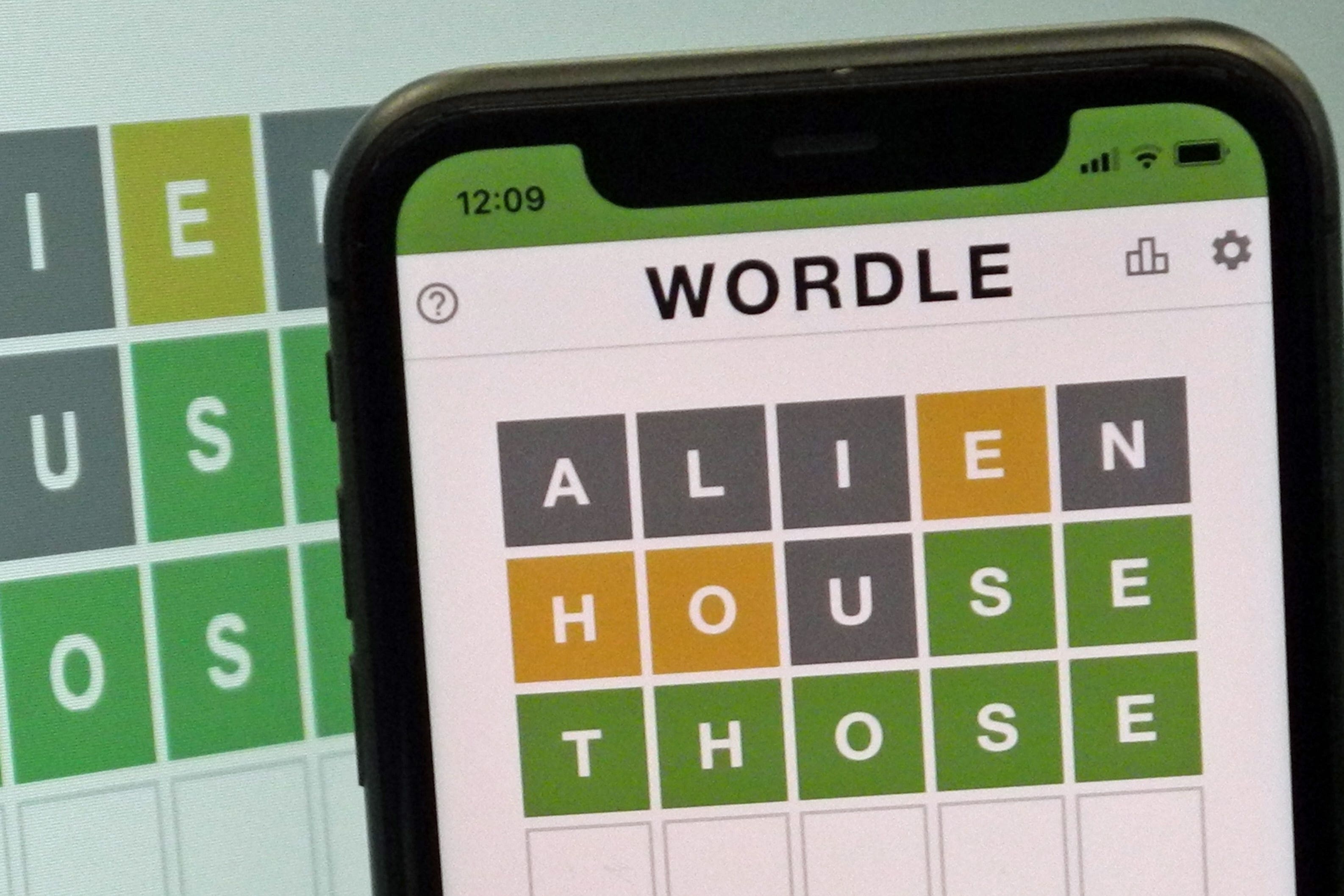Am I the only person still passionate about Wordle?
Competing with his daughter’s highly questionable methods, Will Gore aims to restore his ‘perfect’ record on the daily puzzle game


If I asked what you were doing 18 months ago, you might initially find it hard to remember. But if I said to you “Wordle”, you’d almost certainly recall that a year and a half ago you were either stressing over that day’s fiendish puzzle, desperately waiting for the next one to drop, or perhaps trying to avoid the gazillions of people posting their daily scores on WhatsApp, Twitter, Facebook and the village notice board.
The story of Wordle’s meteoric rise is well-known. Created by Josh Wardle, a Welsh software engineer, it was launched publicly in October 2021, the aim being to guess the five-letter word of the day in six guesses or fewer. By the first week in January 2022, it was being played by 300,000 people a day; a fortnight later, it had over 2 million daily plays; and at the end of the month, the game was acquired by The New York Times in a multimillion-dollar deal.
I was hooked pretty early, as were most of my family. Such was my enthusiasm, that one Wordle a day was not enough. I played Dordle (one set of guesses, two words), Quordle (four words) and Octordle (eight words) on my lunch break. After work, I’d play Worldle (six chances to figure out a country outline) with my daughter. She also played Waffle (a multi-word grid), and told me in embarrassed tones about Sweardle – like Wordle but for the potty-mouthed.
As we drift towards the autumn of 2023, Wordle mania feels like a dim memory. No longer does my brother tell me when he gets it in two and my Twitter (sorry, X) feed isn’t clogged up with boasters (and hoaxers) proclaiming their brilliance.
However, my personal preoccupation with the game has only become more intense – fuelled by stats and the desire not to be bettered by my daughter.
Back in the early days, I played Wordle on various unconnected devices, paying little heed to my overall numbers. But once I had settled on playing it only on my phone, the statistics became vital. I became absorbed with trying to increase the proportion of wins in three turns or fewer; and irked by my inability to win in two more often than in six.
My daughter seemed regularly to complete the puzzle in fewer turns than I did. I changed my tactics, employing her method of sticking with successful letters, rather than simply using up three turns in deploying as much of the alphabet as possible.
The new technique did the trick, though my daughter – evidently more of a wordsmith at 14 than I am at 44 – still gets the better of me more often than not.
But my particular fixation is on my overall success rate. Wordle is not, fundamentally, a difficult game and even a single failure sticks in the craw. When my completion rate dipped to 98 per cent I was mortified. Yet not long afterwards, when I did my 400th puzzle and Wordle announced that my success percentage was back up to 99, I realised there was still a possibility that I could return to a “perfect” hit rate, thanks to a little bit of rounding up.
All I need to do is complete another 778 games without any failures and I can post a screenshot of my “100 per cent” record to every social media platform going. I’ll be adored for it, I’m sure. Keep your eye out for it around mid-October 2025.
I told my daughter about my realisation. With a near-perfect win percentage of her own, I thought she might like to follow suit – although I noted with surprise how rare it was that she completed a puzzle on her sixth and last turn.
“Yeah, I don’t do the last guess if I’m not sure it’s right,” she said casually. “That way I don’t lose.”
It was as if the scales had fallen from my eyes. I spluttered a bit, but she was back to watching YouTube by then. Perhaps she was trying to TEACH me. But I think the answer of the day was CHEAT.
Join our commenting forum
Join thought-provoking conversations, follow other Independent readers and see their replies
Comments



Bookmark popover
Removed from bookmarks